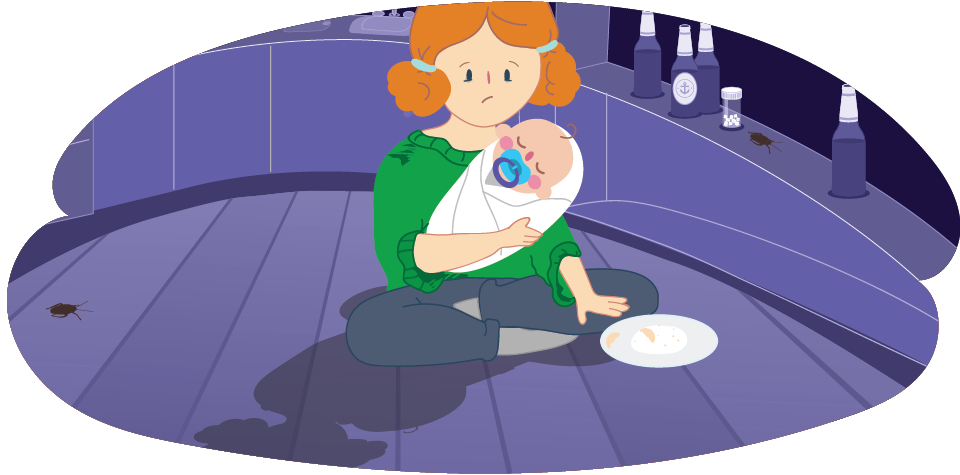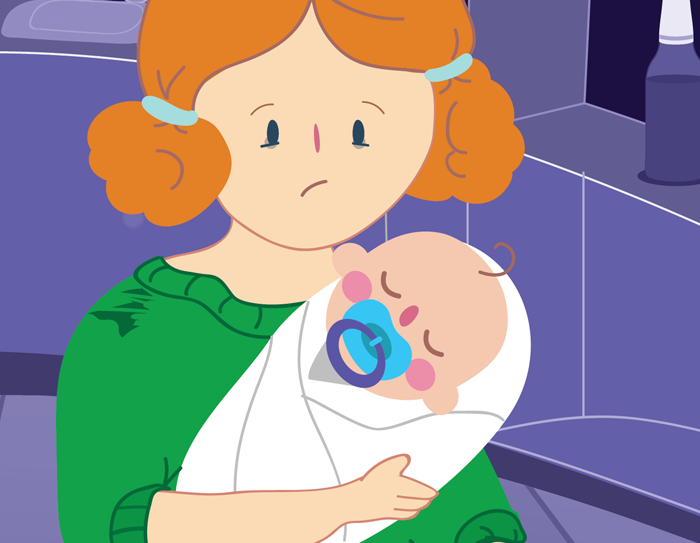Understanding child neglect
We explain child neglect, what the signs are and how to help.

What is neglect?
When a child doesn't have their basic needs met by the people who are supposed to look after them it's called neglect.
- A child’s needs may be similar across cultures, but how these needs are met might differ from one family to another
- Parenting behaviour can range from ‘good enough’ parenting through to an inability to provide for a child’s basic needs
- Some parents may have difficulty providing for their children due to circumstances like poverty, addiction or mental illness
What are a child’s basic needs?
There are several needs which affect a child’s development and that need to be attended to by their parent or caregiver.
When these needs are not met, it can have lifelong physical, cognitive and emotional impacts.
Physical – shelter, food, clothing, hygiene, sleep
Affection – cuddles, kisses, holding, tenderness, patience
Security – consistent care, appropriate boundaries
Guidance – teaching life skills, instilling values
Independence – balancing protection and exploring
Responsibility – appropriate chores, involved in decisions
Stimulation – encouragement, praise, play
Approval – understanding and acceptance
Neglect is usually more than a one-off incident. It can build up over time and the behaviour may become normalised by the parent and child.
Types of neglect
Child neglect can occur across a number of different areas in a child’s life. Neglect may include just one type, a few different types or all of them.
The signs of neglect
It may indicate neglect if a child shows any of these signs:
Is frequently absent from school
Inadequate, worn out or dirty clothing
Living in unhygienic or unsafe conditions
May steal or beg for food, clothing, money
Extremely dirty, unwashed or have body odour
Frequently hungry, without food or malnourished
Is home alone for long periods without supervision
Untreated injuries, illness or physical conditions
Parent or carer is abusing alcohol or other substances
Parent or carer may appear indifferent toward to the child
Everybody has a part to play in protecting children from abuse and harm.
Who else can help?
If you have a reason to suspect a child is experiencing harm, or is at risk of experiencing harm, contact an authority in your State and talk to them about your concerns.
We're here to help
Support is available
Encourage the child to contact Kids Helpline if they need some extra support to cope with what's happening.
If you would like to talk through your concerns with a counsellor, try calling Parentline in your state or territory for support.
For some guidance on responding to disclosures of child abuse, see our article on Responding to child abuse.
Check these out too:
Responding to disclosures of child abuse
When a child discloses abuse it can be hard to know how ...
READ MEUnderstanding child physical abuse
Learn more about what physical child abuse is, the signs and impacts ...
READ MEUnderstanding child sexual abuse
In this article we’ll explore what child sexual abuse is and ...
READ MEFamilies impacted by domestic violence
Domestic violence can happen in any family. It’s never ok and ...
READ METalking helps! We’re here for you.
No problem is too big or too small.
We're here 24 hours a day, 7 days a week






